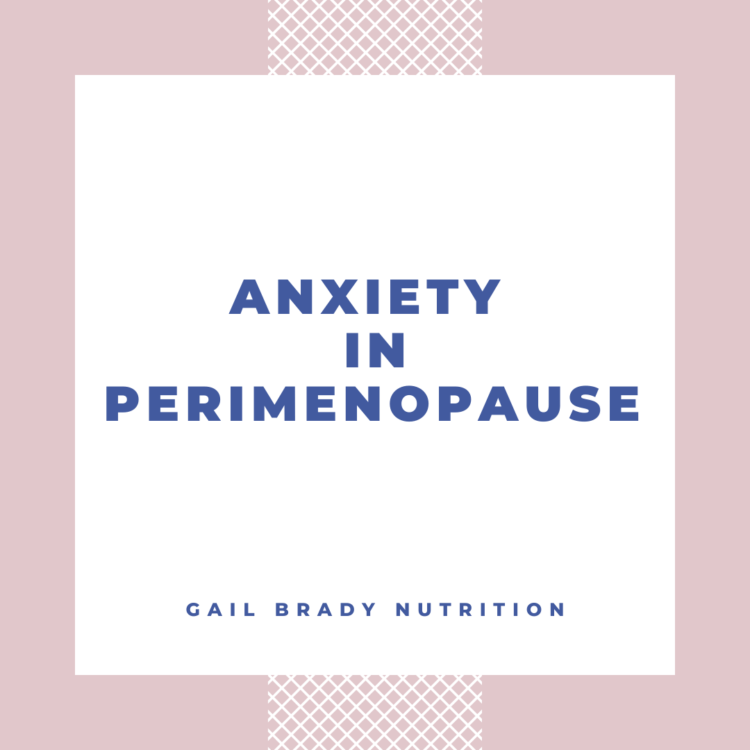Peri-menopause symptoms can be both physical and psychological.
The physical symptoms tend to be the ones that we hear about the most, the hot flushes, night sweats, weight gain, skin changes etc
But it can often be it is the psychological symptoms that take us by surprise.
Increased anxiety is one of those unexpected symptoms… and is a symptom that many women find difficult to manage in peri-menopause.
What is anxiety?
Anxiety can show up in lots of ways; feeling unable to cope, worrying excessively, feeling overwhelmed, fearing the worst…
It can also show up as physical symptoms such as a racing heart or shortness of breath and even panic attacks.
Research has also associated increased anxiety with the increased incidence of hot flushes.
Why does anxiety increase in menopause?
One of the reasons anxiety can increase in perimenopause is due to fluctuating levels of hormones.
Oestrogen plays a role in regulating moods. It also has an effect on the levels of feel-good hormones in the body such as serotonin.
Some of the ways your diet and lifestyle could help
Diet
Eating a balanced diet with plenty of good quality protein and fresh vegetables can go a long way to supporting your health and anxiety. If you are stuck for ideas, you can find some recipes on this website and more here
These foods contain some of the essential nutrients for managing anxiety
- Nuts and seeds
- Berries
- mushrooms
- leafy greens
- asparagus
- dark chocolate, yes dark chocolate!
Breakfast – Make sure you include enough protein in your first meal of the day. This can set you up for the day ahead and help to prevent a blood sugar roller coaster which can lead to increased anxiety. If you want to find out more about how much protein you should be eating, you will find what you need to know here
Caffeine and alcohol – I’m never popular when I mention this… but many people use caffeine and alcohol because they think it will make them feel better. The truth is caffeine and alcohol can exacerbate anxiety symptoms and increase the risk of panic attacks
Support gut health – The vast majority of the feel-good neurotransmitter serotonin is made in the gut. So, if your gut is struggling so may find your anxiety levels increase too
Lifestyle
Sleep – I think we all know how much better we feel after a good night’s sleep. However, disrupted sleep is common in perimenopause and this can be another driver of anxiety. Having a nightly routine and practising some good sleep habits could help with this. You can find out more in my post on sleep here
Moderate exercise – There is no doubt that exercise is good for us. Sitting for long lengths of time is not good. However, the type and duration of exercise can affect you differently in perimenopause. For most women, high-intensity exercise can have a negative effect on hormones and increases stress hormones can lead to worse symptoms. Moderate exercise tends to work best during this life stage. It should be something that you enjoy and will continue doing. Strength or resistance training using your own bodyweight, gym machines or weights, can be especially good as it builds muscles and supports bones. Other types of exercise which can help to calm the nervous system are yoga and pilates
Managing stress – A tough one sometimes, there is often a lot going on at this life stage… Deep breathing exercises can be very helpful and can be done anywhere, humming, singing, dancing, cold showers or wild swimming, laughing and acupuncture are all things that may help. Research has also shown Cognitive Behavioural Therapy (CBT), a talk therapy, to be effective for some people and is recommended in the UK NICE guidelines for managing anxiety




